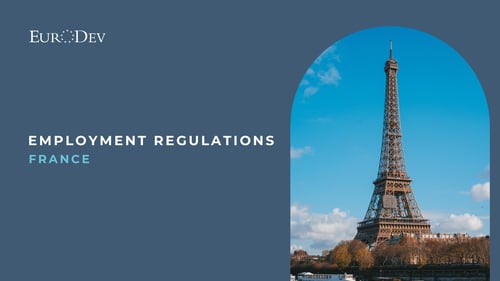5 Tips for Recruitment in Europe
Recruiting in Europe can be a daunting task, especially for companies that are unfamiliar with the nuances of the European job market. However, with the right approach and knowledge, it is possible to attract and retain top talent in Europe. In this blog post, we will provide important tips to help successfully recruit in Europe.
Understanding the cultural differences
Europe is a diverse continent, and each country has its unique culture and working style. Before recruiting, it is essential to research and understand the cultural differences that may impact the recruitment process. For example, in some European countries, it is customary to send a cover letter with a resume, while in others, it is not required. Additionally, understanding the language differences and knowing which languages are necessary for the job is critical. While English is commonly spoken in business settings, many countries have their official languages. This can make communication and candidate screening more challenging, requiring the use of translation services or local recruiters.
Understanding the cultural differences
One of the most effective ways to reach potential candidates in Europe is to advertise on local job boards. Many European countries have their job boards, which attract job seekers looking for local opportunities. Advertising on local job boards will not only increase your visibility but also demonstrate your commitment to the local market.
Offering attractive benefits and compensation
Europeans value work-life balance and job security, and it is essential to offer attractive benefits and compensation to attract top talent. Paid time off, flexible working hours, and health insurance are some of the benefits that European candidates prioritize. Additionally, it is essential to research the average salary for the job position in the country to ensure that your compensation package is competitive.
Remote work options
Remote work has become a common trend in Europe, and many job seekers are looking for opportunities that offer a remote work option. Offering a remote work option not only increases your candidate pool but also allows you to access talent in different parts of the country.
Staying compliant with Employment Laws
In Europe, the hiring process is typically more formal and lengthier. In many European countries, employers must follow strict regulations regarding hiring practices. The laws governing employment in Europe varies per country, but they all nurture the same approach. There are strict labor laws that protect employees' rights, and employers must adhere to regulations regarding working hours, breaks, and overtime pay. Also, it is necessary to provide a document that is called Employment Contract, that defines the relationship between employer and employee. In contrast, for example the USA has more flexible labor laws, and employers have more freedom to terminate employees without notice or reason.
In conclusion, recruiting in Europe requires a tailored approach that takes into consideration cultural differences, hiring practices, compensation, labor laws, and cultural norms. By understanding and adapting to these differences, recruiters can attract top talent and build successful teams in Europe.
Disclaimer: While we strive to provide accurate and timely information, please note that HR policies and regulations can change frequently. It is recommended that you seek guidance from our HR consultants to ensure that the data presented here is current and accurate.
Category
Related articles
-

Essential Guide to French Employment Regulations
22 March 2024comprehensive guide on French employment regulations for companies expanding to France, covering...
Read more -

Germany's Pension Landscape: Navigating Benefits and Taxation for Informed Decision-Making
5 February 2024Dive into the intricacies of the German pension system: benefits, calculations, retirement options,...
Read more -

Decoding Statutory Sick Pay (SSP) in the UK
29 January 2024Navigate the complexities of Statutory Sick Pay in the UK with our guide on rights, regulations,...
Read more

